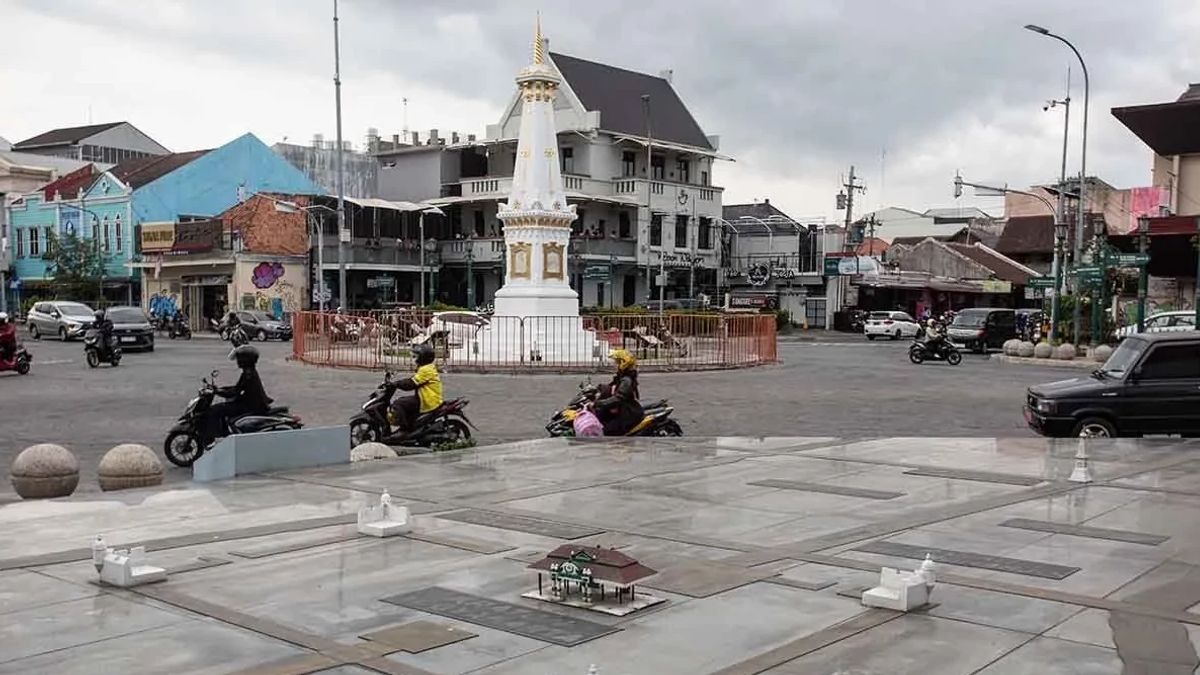JAKARTA - The United Nations Educational, Scientific and Cultural Organization, namely UNESCO, has designated the axis of Yogyakarta philosophy as a world cultural heritage.
The Director General of Culture of the Ministry of Education and Culture, Hilmar Farid, sees that there are many benefits that can be obtained from this determination.
"For Yogyakarta itself, it will definitely increase the value now, it is considered a world heritage, of course, the impact on tourism will be great," said Hilmar at the National Museum, Tuesday, September 19.
However, this also makes the government have a bigger task for preserving the culture of Yogyakarta. "Of course there are implications, yes, the task of preserving it will be even greater," he continued.
The process of submitting the Yogyakarta Philosophy As a world cultural heritage of UNESCO has been carried out by the government since 2014. UNESCO has also assessed the facts on the ground on the proposal in August 2022.
As of Monday, September 18, UNESCO designated the Yogyakarta Philosophy Axis as a world heritage in the 45th Extraordinary Session of World Heritage in Riyadh, Saudi Arabia.
اقرأ أيضا:
On the official website of the Provincial Government of the Special Region of Yogyakarta, Yogyakarta Philosophy Axis is an extraordinary testimony for Javanese civilization and culture.
The location of the Golong-Gilig Monument, Yogyakarta Palace, and the Krapyak Stage which are in one straight line is the Philosophy Axis from Kraton Yogyakarta.
This suggests an important exchange between trust systems and values, directly related to the traditions of life, works of art, and extraordinary literature.
Symbolically, this imaginary axis symbolizes the harmony and balance of human relations with God (Hablun min Allah), humans and humans (Hablun min Annas) and humans with nature including five anisan of its formation, namely fire (danahan) from Mount Merapi, soil (bantala) from the earth of Ngayogyakarta and water (tirta) from the South Sea, wind (maruta) and akasa (ether).
With the stipulation of the Yogyakarta Philosophy As A World Heritage by UNESCO, Indonesia now has five world cultural heritages.
Among them are Borobudur Temple which was determined by 1991, Prambanan Temple which was set by 1991, Sangiran Site which was set for 1996, Bali Subak which was set for 2012, Ombilin Sawahlunto Coal Mine which was set for 2019, and Yogyakarta Philosophy Axis set for 2023.
The English, Chinese, Japanese, Arabic, and French versions are automatically generated by the AI. So there may still be inaccuracies in translating, please always see Indonesian as our main language. (system supported by DigitalSiber.id)



















